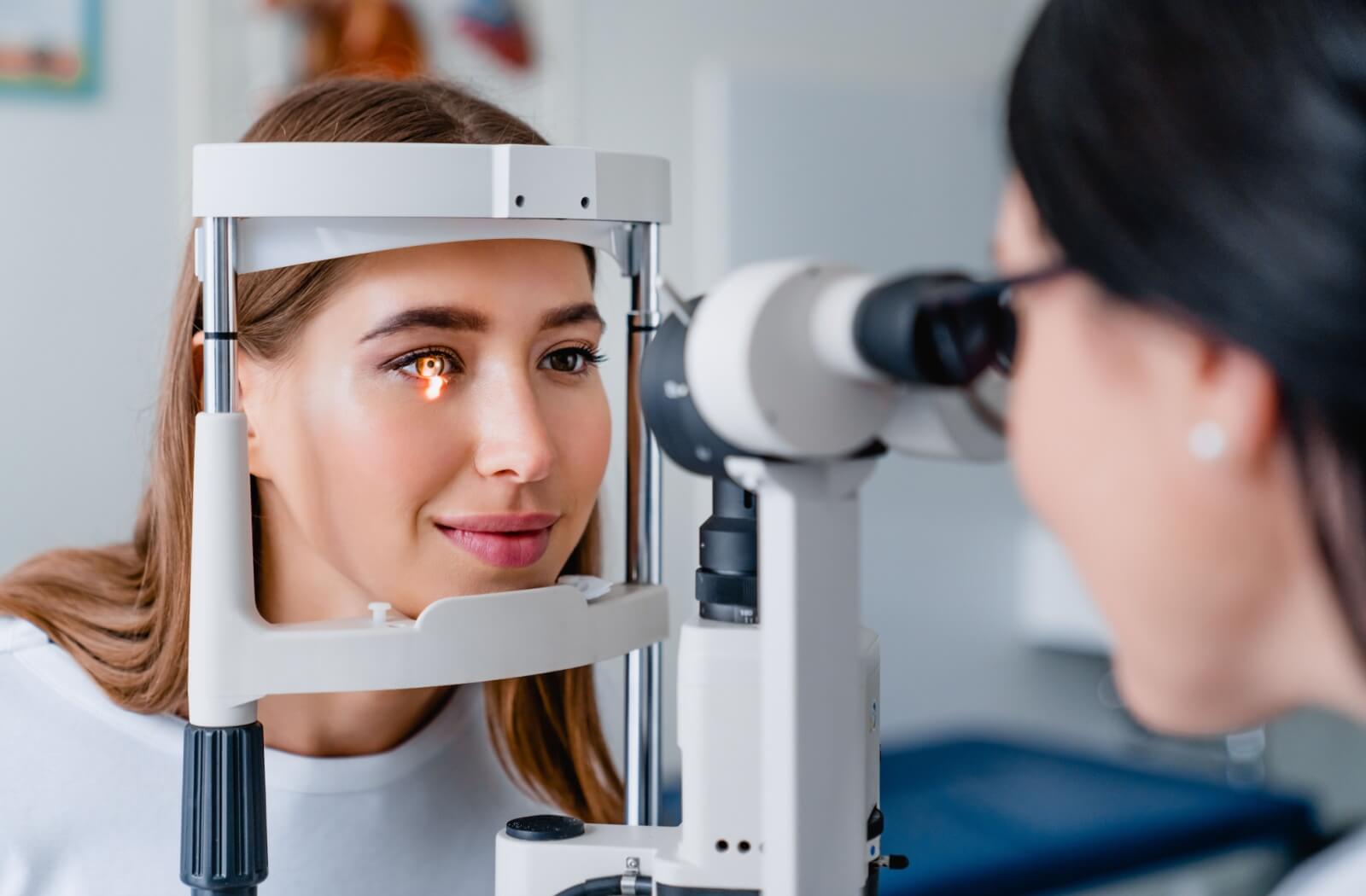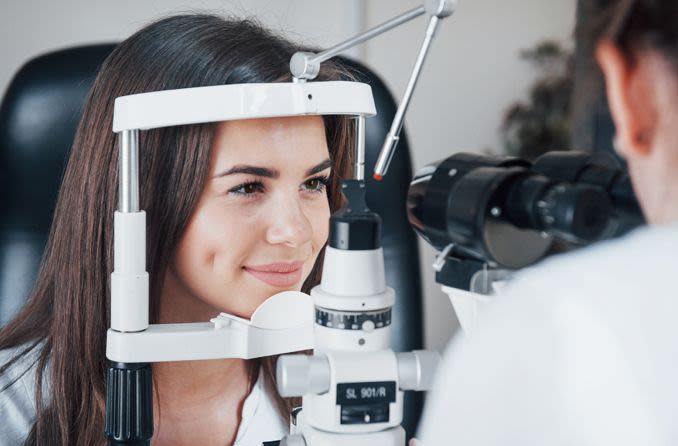All Categories
Featured
Healthy vision is a keystone of top quality of life, yet many individuals ignore the significance of nutrition in preserving eye health. A diet rich in certain nutrients can safeguard your eyes, decrease the risk of creating usual eye illness, and support general ocular function. Allow's explore exactly how nourishment impacts your eyesight and the essential nutrients you need to include in your everyday meals.
Vital Nutrients for Eye Health
Vitamin A. Known for its function in preserving vision, vitamin A is critical for maintaining a healthy and balanced cornea and making it possible for low-light vision. Shortage in vitamin A can cause night loss of sight and other serious eye problems. Exceptional sources consist of carrots, sweet potatoes, and dark leafy eco-friendlies.
Lutein and Zeaxanthin. Located in high concentrations in the retina, these antioxidants safeguard versus damage brought on by blue light and oxidative stress. Consuming foods like spinach, kale, broccoli, and eggs can help maintain your eyes healthy and balanced.
Omega-3 Fat. Omega-3s are crucial for the health and wellness of the retina and can help in reducing signs of completely dry eye syndrome. Include fatty fish such as salmon, tuna, and mackerel in your diet, or choose plant-based resources like chia seeds and walnuts.
Vitamin C. An effective anti-oxidant, vitamin C sustains the wellness of capillary in the eyes and might minimize the danger of cataracts. Foods abundant in vitamin C consist of oranges, strawberries, bell peppers, and tomatoes.
Vitamin E. This nutrient shields eye cells from oxidative damages. Incorporate almonds, sunflower seeds, and avocados into your meals to improve vitamin E levels.
Zinc. Zinc plays a crucial duty in delivering vitamin A from the liver to the retina, assisting in the manufacturing of melanin, a protective pigment in the eyes. Foods such as oysters, beef, and strengthened grains are exceptional sources.
![]()
Preventing Eye Issues Through Diet
Macular Degeneration: Anti-oxidants like lutein, zeaxanthin, and vitamins C and E can assist reduce the development of age-related macular deterioration (AMD)
Cataracts: Ample consumption of vitamin C and various other anti-oxidants might postpone the start or stop of cataracts.
![]()
Dry Eyes: Omega-3 fatty acids aid improve tear top quality and minimize completely dry eye signs and symptoms.
Diabetic Retinopathy: A diet low in polished sugars and rich in entire foods can help take care of blood glucose levels, minimizing the threat of this problem in individuals with diabetes mellitus.
Practical Nutrition Tips
Expand Your Diet Plan: Include a range of fruits, vegetables, lean proteins, and whole grains to guarantee you're obtaining a vast array of nutrients.
Limit Processed Foods: Minimize intake of sugarcoated and unhealthy fats, which can contribute to systemic health and wellness issues influencing your eyes.
Remain Hydrated: Appropriate hydration supports tear production and stops eye dry skin.
Think About Supplements: If your diet does not have specific nutrients, consult a healthcare service provider regarding taking supplements for better eye health.
Final Thought
![]()
Great nourishment is a vital element of keeping optimum eye health. By incorporating nutrient-dense foods into your diet regimen, you can decrease the danger of eye diseases and secure your vision for the lengthy term.
Vital Nutrients for Eye Health
Vitamin A. Known for its function in preserving vision, vitamin A is critical for maintaining a healthy and balanced cornea and making it possible for low-light vision. Shortage in vitamin A can cause night loss of sight and other serious eye problems. Exceptional sources consist of carrots, sweet potatoes, and dark leafy eco-friendlies.
Lutein and Zeaxanthin. Located in high concentrations in the retina, these antioxidants safeguard versus damage brought on by blue light and oxidative stress. Consuming foods like spinach, kale, broccoli, and eggs can help maintain your eyes healthy and balanced.
Omega-3 Fat. Omega-3s are crucial for the health and wellness of the retina and can help in reducing signs of completely dry eye syndrome. Include fatty fish such as salmon, tuna, and mackerel in your diet, or choose plant-based resources like chia seeds and walnuts.
Vitamin C. An effective anti-oxidant, vitamin C sustains the wellness of capillary in the eyes and might minimize the danger of cataracts. Foods abundant in vitamin C consist of oranges, strawberries, bell peppers, and tomatoes.
Vitamin E. This nutrient shields eye cells from oxidative damages. Incorporate almonds, sunflower seeds, and avocados into your meals to improve vitamin E levels.
Zinc. Zinc plays a crucial duty in delivering vitamin A from the liver to the retina, assisting in the manufacturing of melanin, a protective pigment in the eyes. Foods such as oysters, beef, and strengthened grains are exceptional sources.

Preventing Eye Issues Through Diet
Macular Degeneration: Anti-oxidants like lutein, zeaxanthin, and vitamins C and E can assist reduce the development of age-related macular deterioration (AMD)
Cataracts: Ample consumption of vitamin C and various other anti-oxidants might postpone the start or stop of cataracts.

Dry Eyes: Omega-3 fatty acids aid improve tear top quality and minimize completely dry eye signs and symptoms.
Diabetic Retinopathy: A diet low in polished sugars and rich in entire foods can help take care of blood glucose levels, minimizing the threat of this problem in individuals with diabetes mellitus.
Practical Nutrition Tips
Expand Your Diet Plan: Include a range of fruits, vegetables, lean proteins, and whole grains to guarantee you're obtaining a vast array of nutrients.
Limit Processed Foods: Minimize intake of sugarcoated and unhealthy fats, which can contribute to systemic health and wellness issues influencing your eyes.
Remain Hydrated: Appropriate hydration supports tear production and stops eye dry skin.
Think About Supplements: If your diet does not have specific nutrients, consult a healthcare service provider regarding taking supplements for better eye health.
Final Thought

Great nourishment is a vital element of keeping optimum eye health. By incorporating nutrient-dense foods into your diet regimen, you can decrease the danger of eye diseases and secure your vision for the lengthy term.
Latest Posts
Explore Exclusive Auto Repair Offers in Chicago at Montclare Auto Repair
Published en
1 min read
Discover Save Big on Car Maintenance with Montclare Auto Repair’s Limited-Time Deals
Published en
1 min read
How to Know When Your Car Needs Expert Vehicle Service at Montclare Auto Repair
Published en
1 min read
More
Latest Posts
Explore Exclusive Auto Repair Offers in Chicago at Montclare Auto Repair
Published May 26, 25
1 min read
Discover Save Big on Car Maintenance with Montclare Auto Repair’s Limited-Time Deals
Published May 26, 25
1 min read
How to Know When Your Car Needs Expert Vehicle Service at Montclare Auto Repair
Published May 25, 25
1 min read